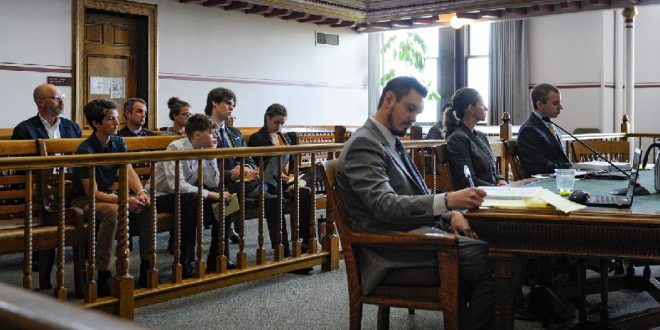13-06-2023
HELENA: A trial begins on Monday in Helena for Held v State of Montana, the first youth-led constitutional climate case to see its day in court in the United States.
 In court papers filed in March 2020, 16 plaintiffs between the ages of five and 22 assert that Montana’s promotion of an energy system reliant on fossil fuels violates their right to a clean and healthy environment under the state constitution. The trial is expected to conclude on June 23.
In court papers filed in March 2020, 16 plaintiffs between the ages of five and 22 assert that Montana’s promotion of an energy system reliant on fossil fuels violates their right to a clean and healthy environment under the state constitution. The trial is expected to conclude on June 23.
“Although these cases have been filed all over the country, the other cases have been dismissed before reaching trial,” Michelle Bryan, a natural resources and environmental law professor at the University of Montana, told Al Jazeera.
“So this will be the first time that youth will have gone on the stand and given testimony and scientists will have gone on the stand and given testimony about climate injury and the role of government in preventing climate injury. For that reason alone, it will be a historic moment in climate litigation.”
Barbara Chillcott, a Western Environmental Law Center attorney on the case, told Al Jazeera that viewers of the livestreamed trial can expect exactly that: an opportunity for young people to share stories about how they’ve been harmed by climate change alongside expert climate scientist witnesses.
 The plaintiffs’ case will start “with the basics, the nuts and bolts of climate change, and moving into the harms caused by climate that our plaintiffs are experiencing”, Chillcott says.
The plaintiffs’ case will start “with the basics, the nuts and bolts of climate change, and moving into the harms caused by climate that our plaintiffs are experiencing”, Chillcott says.
It will also cover “Montana’s contribution to the climate crisis as well as the analysis that shows that Montana can move into the renewable energy space and phase out of fossil fuels now, the technology is available”.
For Chillcott, getting this evidence entered into the court record is monumental, both in itself and given the extent to which it can serve as a springboard for other climate cases in jurisdictions across the country.
Should the plaintiffs prevail in their case, Bryan says “We will have in the United States an example of the government being required to consider impacts to climate when it makes fossil fuel-related decisions.” (Int’l Monitoring Desk)
 Pressmediaofindia
Pressmediaofindia




